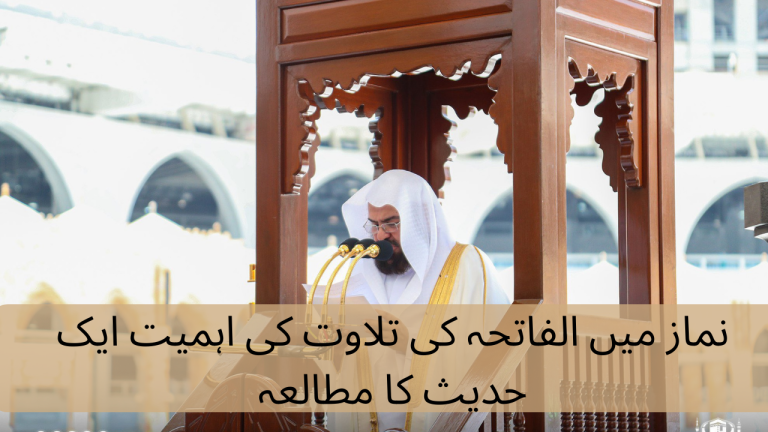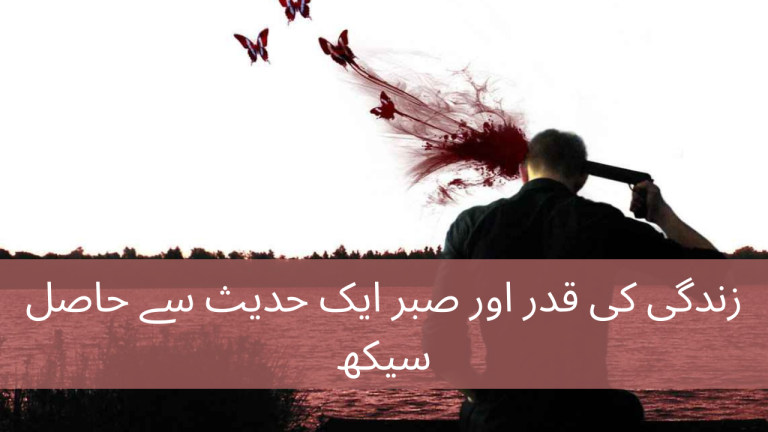The Prodigals Repentance Lessons in Mercy and Forgiveness

The Prodigals Repentance Lessons in Mercy and Forgiveness On the authority of Abu Hurayrah (may Allah be pleased with him), who said that the Messenger of Allah (ﷺ) said
The Prodigals Repentance Lessons in Mercy and Forgiveness
A man sinned greatly against himself, and when death came to him he charged his sons, saying: When I have died, burn me, then crush me and scatter [my ashes] into the sea, for, by Allah, if my Lord takes possession of me, He will punish me in a manner in which He has punished no one [else]. So they did that to him.
Then He said to the earth: Produce what you have taken-and there he was! And He said to him: What induced you to do what you did? He said: Being afraid of You, O my Lord (or he said: Being frightened of You) and because of that He forgave him. It was related by Muslim (also by al-Bukhari, an-Nasa’i and Ibn Majah).
عَنْ أَبي هُرَيْرَةَ ، رَضِيَ اللهُ عَنْهُ ، عَنِ النَّبَيِّ صَلَّى الله عَلَيْهِ وَ سَلَّمَ ، قَالَ : أَسْرَفَ رَجُلٌ عَلي نَفْسِهِ ، فَلَمَّا حَضَرَهُ المَوْتُ أَوْصَى بَنِيه ، فَقَالَ : إِذَا أَنَا مِتُّ فَأَحْرِقُوني ، ثُمَّ اسْحَقُوني ، ثُمَّ أَذْرُوني في البَحْرِ فَوَاللهِ لَئِنْ قَدَرَ عَلَيَّ رَبِّي لَيُعَذَّبَنِّي عَذَاباً ، مَا عَذَّبَهُ أَحَداً ، فَفَعَلُوا ذَلِكَ بِهِ . فَقَالَ لِلْأَرْضِ : أَدِّي مَا أَخَذْتِ ، فَإِذا هُوَ قَائِمٌ ، فَقَالَ لَهُ : مَا حَمَلَكَ عَلَي مَا صَنَعْتَ ؟ قَالَ : خَشْيَتُكَ يَا رَبِّ ، أَوْ مَخَافَتُكَ . فَغَفَرَ لَهُ بِذَلِكَ . رواهُ مسلم (وكذلك البخاري والنسائي وابن ماجه)
This hadith is commonly known in Arabic, and it is often cited in discussions about the consequences of extravagance and the importance of fearing Allah. Here is the translation of the hadith in Arabic, Urdu, and English
Arabic
عَنْ أَبي هُرَيْرَةَ، رَضِيَ اللهُ عَنْهُ، عَنِ النَّبَيِّ صَلَّى الله عَلَيْهِ وَسَلَّمَ، قَالَ: أَسْرَفَ رَجُلٌ عَلَى نَفْسِهِ، فَلَمَّا حَضَرَهُ المَوْتُ أَوْصَى بَنِيه، فَقَالَ: إِذَا أَنَا مِتُّ فَأَحْرِقُونِي، ثُمَّ اسْحَقُونِي، ثُمَّ أَذْرُونِي في البَحْرِ فَوَاللهِ لَئِنْ قَدَرَ عَلَيَّ رَبِّي لَيُعَذَّبَنِّي عَذَابًا، مَا عَذَّبَهُ أَحَدًا، فَفَعَلُوا ذَلِكَ بِهِ. فَقَالَ لِلْأَرْضِ: أَدِّي مَا أَخَذْتِ، فَإِذَا هُوَ قَائِمٌ، فَقَالَ لَهُ: مَا حَمَلَكَ عَلَى مَا صَنَعْتَ؟ قَالَ: خَشْيَتُكَ يَا رَبِّ، أَوْ مَخَافَتُكَ. فَغَفَرَ لَهُ بِذَلِكَ.
Urdu
حضرت ابو ہریرہؓ نبی کریم صلی اللہ علیہ وآلہ وسلم سے روایت کرتے ہیں کہ ایک شخص نے اپنی زندگی میں اسراف کیا، جب اس کا وقتِ موت آیا تو اس نے اپنی آخری وصیت میں کہا: “جب میں مر جاؤں تو میری لاش کو جلادو، پھر اسے چھوڑ دو اور پھر مجھے سمندر میں چھوڑ دو، یہ میری قسم ہے کہ اگر میرے رب نے مجھ پر قدرت حاصل کرلی تو مجھ پر ایسا عذاب آئے گا جو کسی پر آیا ہوگا۔” انہوں نے اس کے مطابق کیا، اور جب اس نے اللہ کے حضور آیا تو اللہ نے اس سے پوچھا: “تجھے کیا آگیا کہ تو یہ کام کرتا رہا؟” وہ شخص جواب دیتا ہے: “اے میرے رب! تجھ سے ڈر تھا یا خوف تھا۔” اللہ تعالی نے اسے اس گناہ کی معافی دی۔
English
Narrated Abu Huraira (may Allah be pleased with him): The Prophet (peace be upon him) said, “A man indulged in sin and then when death came to him, he gave (the following) instructions: ‘When I die, burn me, then crush my ashes, and scatter the powder in the sea on a hot (or windy) day.'” The Prophet added, “He did so, but Allah gathered his particles and asked him why he had done so. He replied, ‘For fear of You.’ So Allah forgave him.
The benefits of this hadith can be understood in several ways
-
Warning against Extravagance
- The hadith serves as a warning against extravagance and excessive spending on oneself. It highlights the consequences of a person who lived a life of excess but realized the error of his ways upon facing death.
-
Repentance and Seeking Forgiveness
- The hadith emphasizes the concept of repentance and seeking forgiveness from Allah. Despite a life of extravagance, the person repents sincerely in his final moments, demonstrating that it is never too late to turn back to Allah.
-
Fear of Allah’s Punishment
- The fear expressed by the man in the hadith reflects the genuine fear of Allah’s punishment. This fear leads to his specific instructions regarding the disposal of his remains, showing the depth of his remorse and desire to avoid the consequences of his actions.
-
Allah’s Mercy and Forgiveness
- The hadith portrays Allah’s immense mercy and forgiveness. Despite the extreme instructions given by the man, Allah forgives him when he explains that his actions were driven by fear of Allah’s punishment. This highlights Allah’s willingness to forgive sincere repentance.
-
Symbolism of Ashes in the Sea
- The symbolic act of burning the body, crushing the ashes, and scattering them in the sea on a hot or windy day is a powerful metaphor. It symbolizes the dispersion of the person’s sins and serves as a reminder that Allah has the power to gather and forgive, even if one tries to escape the consequences.
-
Encouragement for Repentance Before Death
- The hadith encourages believers to repent and seek forgiveness well before facing death. It emphasizes the unpredictability of life and the importance of being conscious of one’s actions throughout life.
In summary, the hadith provides lessons on repentance, humility, fear of Allah, and the boundless mercy of Allah. It encourages believers to reflect on their actions, seek forgiveness sincerely, and never underestimate Allah’s capacity for forgiveness.
Conclusion
This hadith underscores the dangers of extravagance, urging repentance and sincere remorse before death. It illuminates the profound mercy of Allah, showcasing His forgiveness for those who turn to Him in fear and repentance.
The symbolic act of scattering ashes symbolizes the dispersion of sins and serves as a poignant reminder of Allah’s omnipotence. Ultimately, the hadith inspires believers to lead lives mindful of their actions, seeking forgiveness throughout, and emphasizing the importance of sincere repentance and Allah’s boundless compassion.





